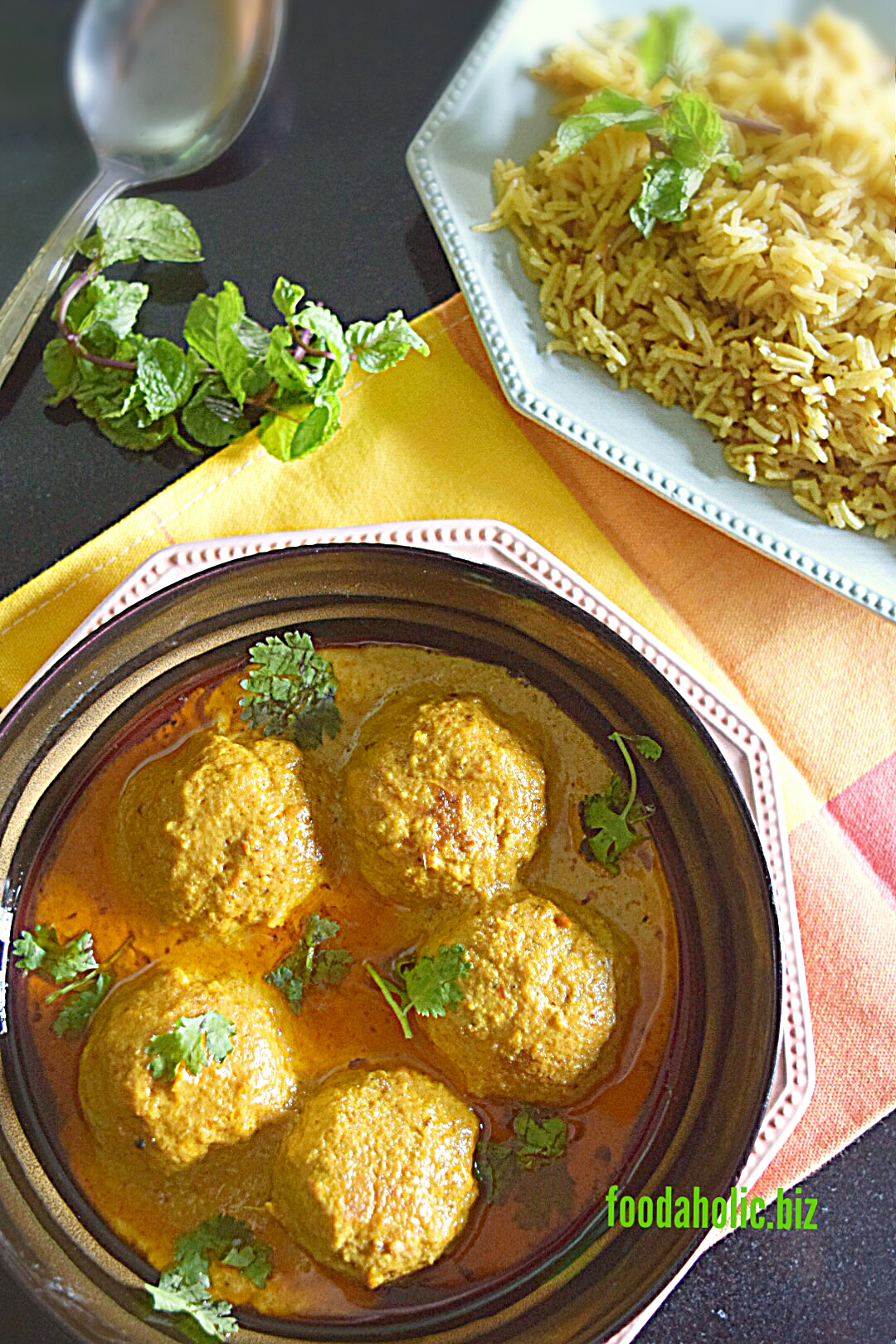
“Meatballs are the ultimate cure-all for anything that ails you.”
The New Meatball Shop Cookbook
Meatballs are universal! Yes, think of any cuisine and you will find some version of meatballs present. Be it the American style meatballs perched on top of spaghetti, covered in cheese or Spanish albondigas that are popular tapas, Greek keftedes that are made with lamb and mint or Japanese sec une that use chicken and ginger.
Thai, Chinese, Vietnamese, Moroccan and Indian cuisines all have special recipes for this ultimate comfort food. And they are economical too! As in this Pakistani style Koftay ka Salan recipe, which is a simple meatball curry, I have made ten meatballs with just 1/2 kg chicken mince. This quantity is good enough for a family meal or to serve 5 people. Then there is this delicious salan to scoop up with naan or roti or slather over a bowl of rice. All in all a very satisfying meal with very few ingredients.
While there are many similarities in Indian and Pakistani curries, salan is quintessentially a Pakistani concept. In Pakistani cuisine, are further divided into salan (thick gravy-like) or shorba (more soupy). The spices are fewer, used more as aromatics. Mixed ground spices or garam masala is often used as garnish as are fresh herbs – fresh coriander, mint, ginger and green chilli peppers.
Koftay in this recipe are not deep fried seperately but simmered in salan which keeps them very tender and moist.
For Salan/Curry :
1 medium onion, chopped
2 tablespoons ginger-garlic paste
2 tomatoes, skins removed
1 cup yogurt
1 teaspoon salt or to taste
1 teaspoon red chilli powder
1/2 teaspoon turmeric
1 teaspoon ground coriander
1 teaspoon ground cumin
2 black cardamoms
2-3 tablespoons ghee or olive/coconut oil
For Koftay/ Meatballs :
1/2 kg ground chicken/mutton or beef
1 teaspoon onion powder
1 tablespoon garlic paste
1 tablespoon ginger paste
2 green chilli peppers
1/2 cup fresh coriander or parsley leaves
1 slice white bread (for a gluten free version, omit bread and add 2 tablespoons roasted gram flour/besan )
1 egg
1 teaspoon salt
1 teaspoon red chilli powder
This Is What You Do:
Whiz all these ingredients briefly in a food processor just till mixed or pound by hand using mortar and pestle.
Wet your hands, make medium sized meatballs with the mixture. Cover and refrigerate them till the salan is getting done.
Heat oil in a deep pan over medium heat, add onions, fry till golden brown. Remove the pan from heat.
Place fried onions, yogurt and tomatoes in an electric blender and make a smooth paste.
Put the pan back on heat, add onion yogury tomato paste, ginger-garlic paste, salt and all the spices. Stir till the masala turns to a vibrant orange colour and gets separated from oil.
Add 2 cups water. Cover the pan and let simmer on medium low heat for 5 minutes.
Add koftay directly to the curry pan, no need to fry separately.
Add more water, if the liquid is reduced in the curry, for the desired consistency of curry.
Cover the pan and let meatballs simmer in the curry for 15 minutes. Garnish with fresh coriander, serve hot with roti or rice.
Makes 10 meatballs

Thanks for the explanation of salan and shorba I know it should be easy but I manage to interchage them often. These koftay ka salan with naan and roti tasted awesome. Loved it
I haven’t met a meatball I curry I didn’t like, and your koftay ka salan looks so incredibly delicious and comforting! And thanks for that explanation of the difference between salan and shorba, very helpful to know. This is definitely going on my list of recipes to make. Thank you, Maria.
An interesting recipe Maria. The meat koftas can be easily replaced with a veggie ones to make a vegetarian version of the koftay ka salan.
Your explanation of regional difference between yours versus Indian one is very interesting, and I can relate to it. Quite some of the Japanese cooking was inspired by the Chinese, and we modified by our own way!
this is a delicious treat i must say…